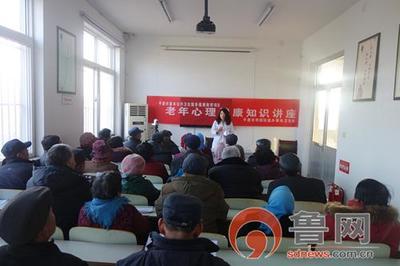confuse confuse的用法
2019-07-26 04:22:39
来源:朵拉利品网
1, confuse的用法

confuse的用法如下:1、confuse sb. with sth.因某事而使某人糊涂。例句:You confused me with your questions.2、confuse sth/sb. with sth/sb. 把...跟...混淆。例句:Did you confuse me with Jane?confusing和confused的区别:confusing指令人感到迷惑的,confused指感到迷惑的。这两个词可以这样区分,confusing 一般修饰物,confused一般修饰人,不过这也不是绝对的,可以根据句意理解。1、Do you confuse speculating with investing? 你是否混同了投机和投资?2、Do you confuse skill and luck? 你是否混淆了技巧和运气?3、I often confuse you and your brother. 我常把你和你哥哥弄错了。4、Don"t confuse what you like with what works best for you. 不要混淆你所喜欢的和对你而言最有效的。5、If we confuse these three levels we will not think clearly. 如果我混淆了这三个等级,我们不会清晰地思考。6、You should not confuse your career with your life. 你不应该把你的事业和生活混淆。参考资料:百度百科——confuse
2, confuse 和 puzzle的区别

confuse v.一般用语,使混乱,使糊涂,强调因【混淆】而使人产生迷乱。He sent the wrong reports because he confused them 【with other ones】.他发错了报告,因为他把它们同另外一些报告【混淆】在一起了。这组词都有“迷惑”的意思,其区别是:puzzle v.使迷惑,感到不解,强调【不理解】或解决不了。Where the sunken treasure is puzzles explorers.沉没宝藏的下落令探险家们【大惑不解。】bewilder v.使困惑,使茫然,强调【非常困惑,】通常表现为心理和智力的紊乱,【语气最重。】He was fired without warning and is completely 【bewildered about 】the reason.他没有得到事先警告就被开除了,【完全不明白】是什么原因。When the farmers visited the city for the first time, they were【 bewildered by】 its complicated traffic system.当这些农夫们第一次到城里的时候,他们对城市复杂的交通系统感到【迷惑不解。】perplex v.使杂乱,使疑虑,使不安。The new tax laws perplex me.新税收法律使我很费解。
3, Confuse 的用法 详细点的 谢

过去式 confused 过去分词 confused 现在分词 confusingconfuse vt.1、使混乱不清,搞乱:The two steps cannot be confused.这两个步骤不能搞混了。2、弄不清,弄错;混淆:You have confused the meanings of the two words.你把这两个词的意思弄混了。3、使迷惑;使糊涂:The road signs confused the driver.公路上的几个路标把司机搞糊涂了。4、使困窘,使局促不安:They had confused me with their admiration.他们的赞扬使我窘迫不安。变形: confused . confusing1.confuse一般用confuse...with。当然,更多的时候还是用被动语态的形式2.至于confuse...and...经查证,一般固定的用法比如黑白颠倒等这样用,很少见到有and的形式两个短语意思其实是一样的,也就是说:and,with都一样由此,一般情况下,我们用with,有固定用法的时候,遇到and就记下来。
4, confuse与puzzle的区别

puzzle v. To baffle or confuse mentally by presenting or being a difficult problem or matter. 使迷惑,使困恼:通过使面对难题或困难而在精神上阻碍或迷惑 confuse v. To cause to be unable to think with clarity or act with intelligence or understanding; throw off. 使迷惑:使不能清析地思考或理智地行动;使犯错误 其实两个词语本质的意义相差并不大,也有使动用法的功能,美语用使用confuse多点,比较少用puzzle.
5, confuse A and B 和 confuse A with B 有什么区别

一般意义上,两者没有本质区别,都可以译为“把A与B搞混”。只是用法上“confuse A with B”更为常见。但在英语逻辑上,两者的确有细微的差别。记得一个“老外”对此大致是这样表述的:一,"confuse A and B ""confuse A and B " means that it is not easy to distinguish between A and B.这话的大意:"confuse A and B "意味着在AB之间,你不易“ distinguish”(分清;认出)出来。如例句:“Do not confuse the words affect and effect”;“Why we confuse b, d, p, and q?”以上例句你可以品出, affect and effect 或 b, d, p, and q ,“形似而不易辨出”的感觉。二,"confuse A with B ""confuse A with B "means that A is thought to be B. 这话的大意:"confuse A with B "意味着 “把A认为是B”.这时并不强调“不易辨出”,而只是强调搞混的结果。如例句:I think you are confusing me with somebody else.“我想你把我当成其它某人了”。试将上句与“People often confuse me and my sister.”区别,你会明白,这句是强调“我与 my sister”,太像,(或许是双胞胎),外人难以区分的感觉。
相关概念
confused
英 [kən"fjuːzd]美 [kən"fjuːzd] adj.困惑的;混乱的;混杂的。v.困惑(confuse的过去式)
相关资讯
- confuse confuse的用法
- custody full custody和sole custody的区别
- section Section这是什么意思?
- configure configure是什么意思
- maison de fleur hautpoitou 是什么牌子的红酒
- frone怎么读 yucky怎么读
- suntanned suggest sb to do 对么
- jiffy this project什么意思 under this project是什么意思
- each of the students是三单吗 【()ofthestudentsshowsourlovetothechildreninthepoorarea.】作业帮
- countries “countries”是什么意思?
相关产品
- SUNFROST KA 65015 PVC
- SUNPRENE FA 66104 PVC
- SUNPRENE FA 8807C PVC
- NOTIFIER诺帝菲尔 CPU2-640E AMPS-24E CPS-24E火灾报警控制主板 CPU2-640E代理
- 德国劳博抗特种油脂LUBCON Turmoxygen LC40,LUBCON Turmoxygen LC40fluid
- Funone 手感强化版Fidget Cube减压魔方 新奇魔方 创意玩具712
- CYCOLOY、ABS+PC FXC810FE Resin[原包现货]
- Sunoco PP F008F 塑胶原料
- Sunoco PP F350HC2 塑胶原料
- Sunoco PP FF026M 塑胶原料
最新资讯
相关企业
